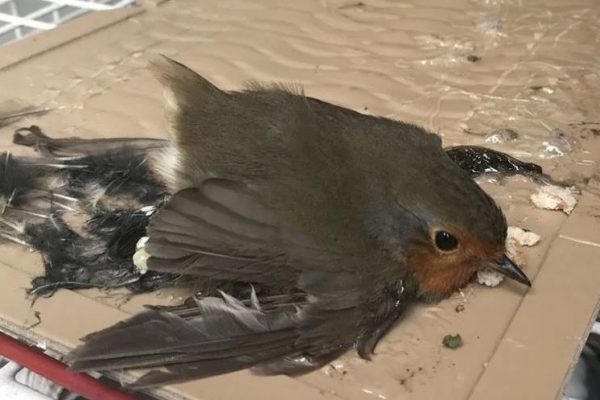If you’ve ever been to a park with a lake or live close to water, you’ll likely come across ducks sooner or later. Ducks are also among the most beautiful sights near the water. But many people wonder if these birds that eat both plants and animals have teeth. The answer is no, not in the way you might think.
Just like most birds, ducks don’t have teeth. So, how do they eat various things like nuts, insects, grains, seeds, and other foods you see them nibbling on when you take a walk by the lake? In this article, we’ll explain how ducks eat and share some interesting facts about them that you might not know.
So, Do Ducks Have Teeth?
The answer, as we mentioned earlier, is no, not like typical teeth. They don’t have sharp teeth like wolves, tigers, sharks, or even humans. Instead, their bills have edges that look like teeth to people who aren’t familiar with ducks. So, even though they lack teeth, their bills help them when it comes to eating.
Did ducks use to have teeth?
Evidence from fossils shows that during the Jurassic period, ducks did have teeth that were well-developed. However, they gradually changed due to different diets and environments. By the time the Cretaceous period arrived, ducks with teeth were no longer around.
As environments changed over time, bird species became smaller and lighter in weight.
One change that happened was that birds’ skeletons became smaller and lighter too. This meant that their skulls became lighter and less sturdy. This natural change resulted in teeth gradually disappearing as newer, lighter skulls evolved.
Do ducks have teeth on their tongues?
Ducks do have tongues, but they don’t have teeth on them. They do have special ridges on the edge of their beaks that might look like tiny teeth. These ridges are called lamellae. They work in a similar way to the bristles in a whale’s mouth, helping the ducks filter out things like mud from their food.
Ducks’ tongues also have tiny structures called papillae that are hair-like. These structures help ducks hold onto their food and move it around in their mouths before swallowing.
What do ducks have instead of teeth?
Ducks have a row of small, sharp ridges on the edges of their bills. These ridges might seem like teeth, but they’re more like a sieve. They help ducks filter out mud and impurities from the water when they’re searching for food. These ridges, called lamellae, also help ducks maneuver their food before swallowing. Unlike mammal teeth made of enamel, a duck’s lamellae are made of the same material as its bill, called keratin.
A crucial part of a duck’s digestive system is the gizzard. This organ in the digestive tract is thick-walled and squeezes and grinds food before sending it to the stomach.
It’s similar to the role of teeth in mammals, breaking down food into smaller pieces before moving it to the stomach.
Grit for digestion gathers in the gizzard, often as stones or gravel known as gastroliths. Ducks swallow these gastroliths to help break down hard parts of their food, like bones or cartilage.
Also Read: Can Ducks Eat Carrots?
Do ducks grind their food?
Ducks don’t grind their food because they don’t have teeth. Instead, they swallow their food whole. After swallowing, the food goes into their gizzard, a part of their digestive system where it gets broken down into smaller pieces before moving to the stomach.
How do ducks feed?
Different duck species eat differently based on their diets. Ducks like Mallards have flat bills and eat mostly plants. On the other hand, ducks like Mergansers have bills with a saw-like edge, which helps them catch and swallow fish and other prey.
Ducks use special notches on their bills called lamellae to filter out non-food items. They swallow the food they want to eat whole, and then their gizzard grinds it down internally.
Do ducks gulp their food?
Since ducks don’t have teeth, they have to swallow their foraged food whole. It then goes into their esophagus and starts the process of digestion.
Do ducks eat until they’re full? Ducks are known for eating throughout the day without worrying about being full. They graze and forage constantly. If a duck seems to stop eating or slow down, it might be a sign of illness.
Do ducks bite?
If ducks feel threatened, they might show aggressive behavior, including noisy displays. If these displays don’t work, ducks might resort to biting or pecking to protect themselves.
Do duck bites hurt?
Even though ducks don’t have teeth, their bites can still be painful. It’s best to avoid situations that stress ducks to prevent being bitten. If a duck seems stressed, it’s a good idea to give it space to calm down and avoid getting bitten.
What Can You Give Ducks to Eat?
Feeding ducks can be puzzling, especially since they lack teeth. To feed them safely, make sure the food is cut into small, manageable pieces.
The best foods to offer ducks include peas, birdseed, and chopped vegetables. Avoid giving them large pieces of food or carb-heavy items like cookies, bread, and popcorn, as they lack nutrition and can be harmful.
If you plan to feed ducks nuts, grind them into smaller pieces first. Large food bits or nuts can cause choking since ducks have no teeth.
Closing Thoughts Ducks are captivating and charming creatures. They can eat a lot without teeth, making them favorites among bird enthusiasts. Remember, ducks don’t have teeth, but that doesn’t hinder their enjoyment of a diverse diet.


![Male vs Female Peacock [Everything you need to know]](https://birdsology.com/wp-content/uploads/2023/11/54-600x400.jpg)



One thought on “Do Ducks Have Teeth? All you Need to Know”